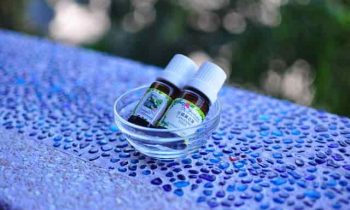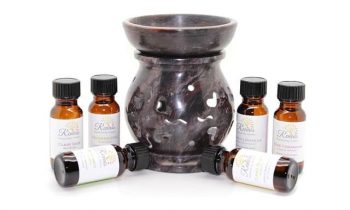You may not be in a position to breathe essential oils diffused or dispersed into the air. You may be in a work situation which doesn’t allow the practice of aromatherapy, or otherwise have to figure out another way to benefit from essential oils.
[adinserter block=”1″]This is one of the advantages of a topical application of oil.
A topical application means applying directly to your hair, skin, scalp, nails or some other part of your body. The oils are absorbed directly into your body, and go to work very quickly. You may do this with or without dilution, as mentioned above, but dilution is the safest and preferable method.
As far as benefits go, the health rewards from using essential oils topically as opposed to aromatically are virtually limitless. From better circulation to stress relief, improved memory to healthier skin and nails, a stronger heart and better sex drive, applying a particular essential oil to your skin, as opposed to inhalation, can deliver any associated health benefit.
Safe Practices Using Essential Oils (EOs) Topically
With a Carrier Oil
If your essential oils are labeled “Dilute”, that is what you should do to get the most healing benefits. These types of oils provide the most health rewards when diluted in a carrier oil. Grapeseed, coconut and jojoba oils are a few examples of carrier oils used in aromatherapy. Many find that fractionated coconut oil works best as a carrier oil.
This is the safest way to apply oils topically. Carrier oils help “drive” the oil into your skin. Massaging or using a hot compress over the applied area will additionally improve absorption
Neat, Straight Up
Some “hot” oils, like cinnamon, clove and oregano to name a few, could cause a tingling, burning, irritating sensation on your skin if not diluted. Some essential oils you purchase will be labeled “Neat”. This means they are safe to use on your skin without dilution. However, it is highly recommended to test a single drop of essential oil massaged into your skin before applying a larger dose, to make sure you don’t suffer any negative side-effects.
With Babies and the Elderly
Essential oils labeled “Sensitive” definitely need to be diluted, especially when using with babies and the elderly. If you are unsure whether a particular oil is safe to use topically on a senior citizen or a baby, consult a certified aromatherapist before using.
Safely Using EOs in Food
There are billions of recipes that teach you different ways to make food dishes. The same can be said for adding essential oils to food. There are more than 300 recognized essential oils, thousands of types of foods and the aforementioned billions of food recipes. This means you are going to run across tons of different recommendations about how much and what kinds of EOs to add to your food for mental and physical health benefits.
[adinserter block=”2″]No matter what recipe you follow, essential oils labeled or promoted as GRAS are probably safe to ingest in your food. GRAS stands for Generally Recognized as Safe for topical and food use. Another safety tip here is to aerie on the side of caution. If a recipe suggests adding 5 drops of a specific oil to some type of dish, why not start with 1 drop first? You can always increase the dosage up to the recommended amount after making sure your food is palatable and the experience is positive.
One really good safety tip for using essential oils in food is to head over to the National Association for Holistic Aromatherapy (NAHA) website . Any internal ingestion recommendations you see there are going to be safe. Also, daily consumption of essential oils is not usually recommended.


 Safety First with Essential Oils
Safety First with Essential Oils Aromatherapy Equipment Essentials
Aromatherapy Equipment Essentials Aromatherapy – How to Get Started Safely
Aromatherapy – How to Get Started Safely